Munich Security Conference: Europe's concerns with Trump government far from over
- Published
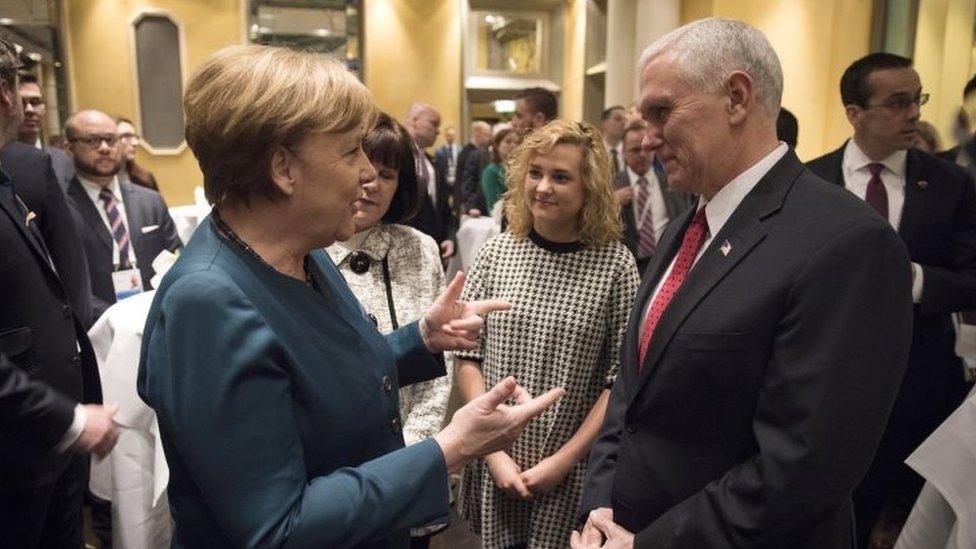
Germany's Angela Merkel, seen here with US Vice-President Mike Pence, asked in a speech whether countries would return to "parochial policies"
The Munich Security Conference is at one and the same time an annual jamboree for senior officials and think-tankers and a place where former officials and corporate movers-and-shakers meet up.
But it also affords an opportunity for a whole series of behind the scenes bilateral meetings. And once every four years it is the place where Europe takes stock of a new US administration.
This year the meeting had added significance since the man in the White House, Donald Trump, is unlike any other president in living memory.
His supporters believe he is the man to overturn the "establishment" in Washington and to get things done.
His detractors believe he is unfit for high office, his erratic behaviour leading some even to question his mental state.
Remember this was a man who on the campaign trail described Nato as "obsolete" and who said that he would end the free ride that he believed many allies - especially in Europe - were taking at the American taxpayers' expense.
So this encounter in Munich was an opportunity for Nato allies to weigh up the new Trump team and to try to gauge the new administration's likely direction. Mr Trump sent his Vice-President Mike Pence to Munich to deliver a series of clearly worded messages.
Trump 'unwavering' in support for Nato allies, says Pence
What does Nato want from Trump?
And to avoid any doubt his new defence chief, General James Mattis, provided a warm-up act at Nato headquarters at the end of last week - and to ensure nobody mistakes the message Mr Pence himself will be heading to Brussels, the seat of Nato, once the Munich conference is over.
Mr Pence used his Munich speech to bring a message of reassurance from the new president. "The US," he said, strongly supports Nato and will be "unwavering in its commitment to the trans-Atlantic alliance" .
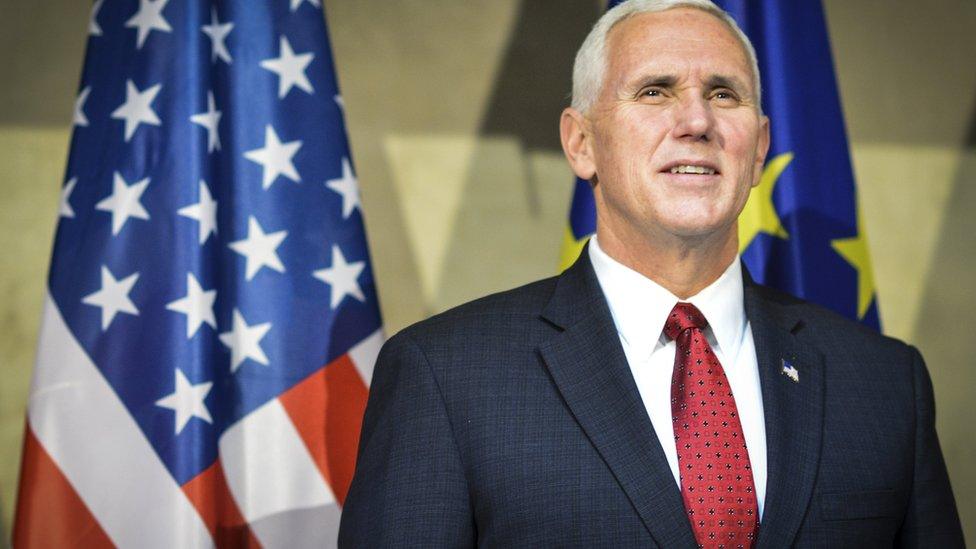
Mike Pence's words were an attempt to calm nerves ruffled when President Trump called the alliance 'obsolete'
But with so few allies actually meeting the agreed target for defence spending, there was a warning too.
"Let me be clear on this point," he stressed, "the president of the United States expects our allies to keep their word to fulfil this commitment and for most that means the time has come to do more".
This statement was met with hesitant applause - an indication that many Europeans do not welcome being bullied by the Trump White House.
Parochial policies?
Earlier, German Chancellor Angela Merkel had emphasised that military spending alone was not the only measure of the Europeans' commitment to security.
She calmly - but pointedly - took issue with many of the Trump team's putative policies, noting the importance of international multilateral institutions like the EU and the UN (both of which have been condemned by Mr Trump).
Indeed at the end of her speech she seemed to take on the central tenet of the Trump campaign - enshrined in the slogan "America First!" Looking to the future she posed a fundamental question. "Will we be able," she asked, "to act in concert together or (will we) fall back into parochial policies?"
One of Europe's greatest fears has been Mr Trump's apparent willingness to do a deal with Moscow - not to mention his evident admiration for Russia's leader Vladimir Putin. Mr Trump's emissaries pretty much convinced their European hosts that on key issues - at least for now - there would be no change.
General Mattis insisted that Russia had to abide by international law and US Secretary of State Rex Tillerson, on a recent visit to Bonn, stressed that agreements like the Minsk accords to end the fighting in Ukraine had to be fully implemented by all sides - including Moscow.
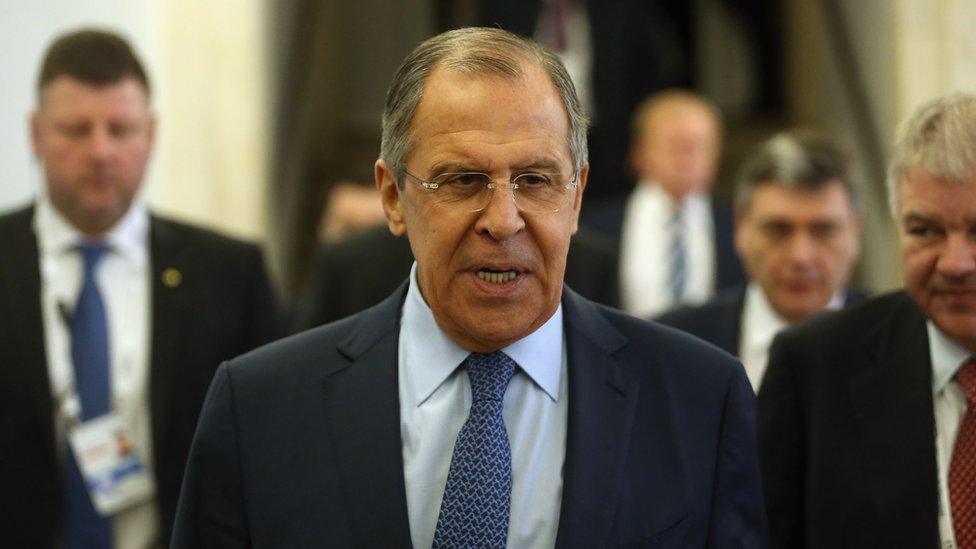
Sergei Lavrov, represented Russia, who were almost bystanders at this Nato conference
Vice-President Pence emphasised the message saying here in Munich that the US would continue to hold Russia to account, even as it searched for areas of common ground.
The Russians have almost been bystanders here watching the internal Nato debate from the sidelines. Russian Foreign Minister Sergei Lavrov returned to a familiar theme - that Nato was essentially an institution of the past. The expansion of the Atlantic Alliance, he said, had led to an unprecedented level of tensions. What was now needed was what he called a "post-western world order".
So there seems little chance here for President Trump's hope for fresh understanding with Moscow - or at the very least that it will not come at the expense of the European Nato allies, or perhaps even of Ukraine. If there is a deal to be done between Washington and Moscow it will lie elsewhere, perhaps over Syria.
This Munich conference will end on Sunday with many of the concerns of the Europeans only partially stilled. For they relate more to the character and outlook of the new US president himself.
One of his tweets can undermine policies that have received bipartisan support in Washington for decades. And its not just a style thing: many of Mr Trump's policies remain unclear, even as so many positions inside his team remain unfilled.
- Published18 February 2017
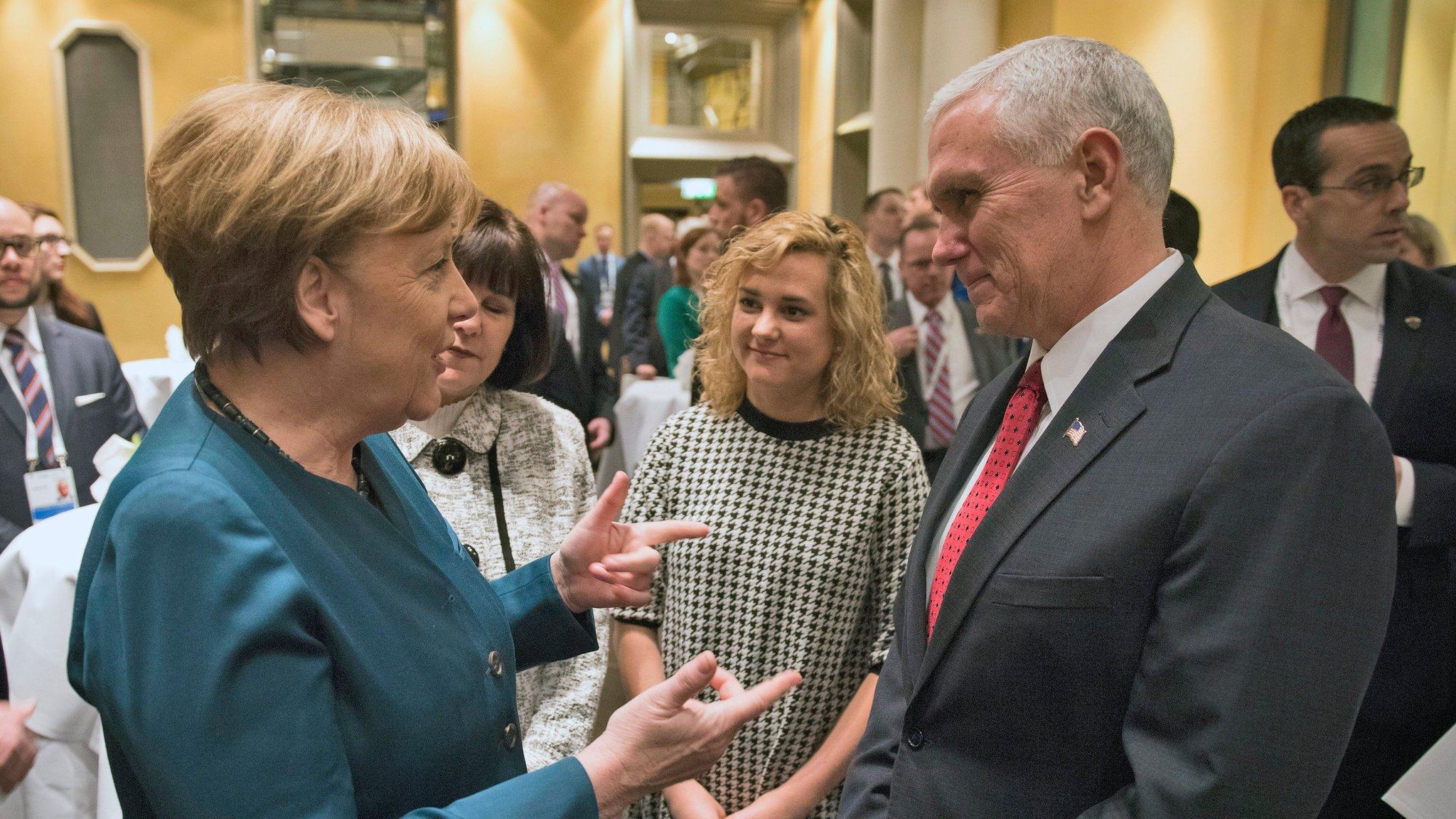
- Published16 January 2017
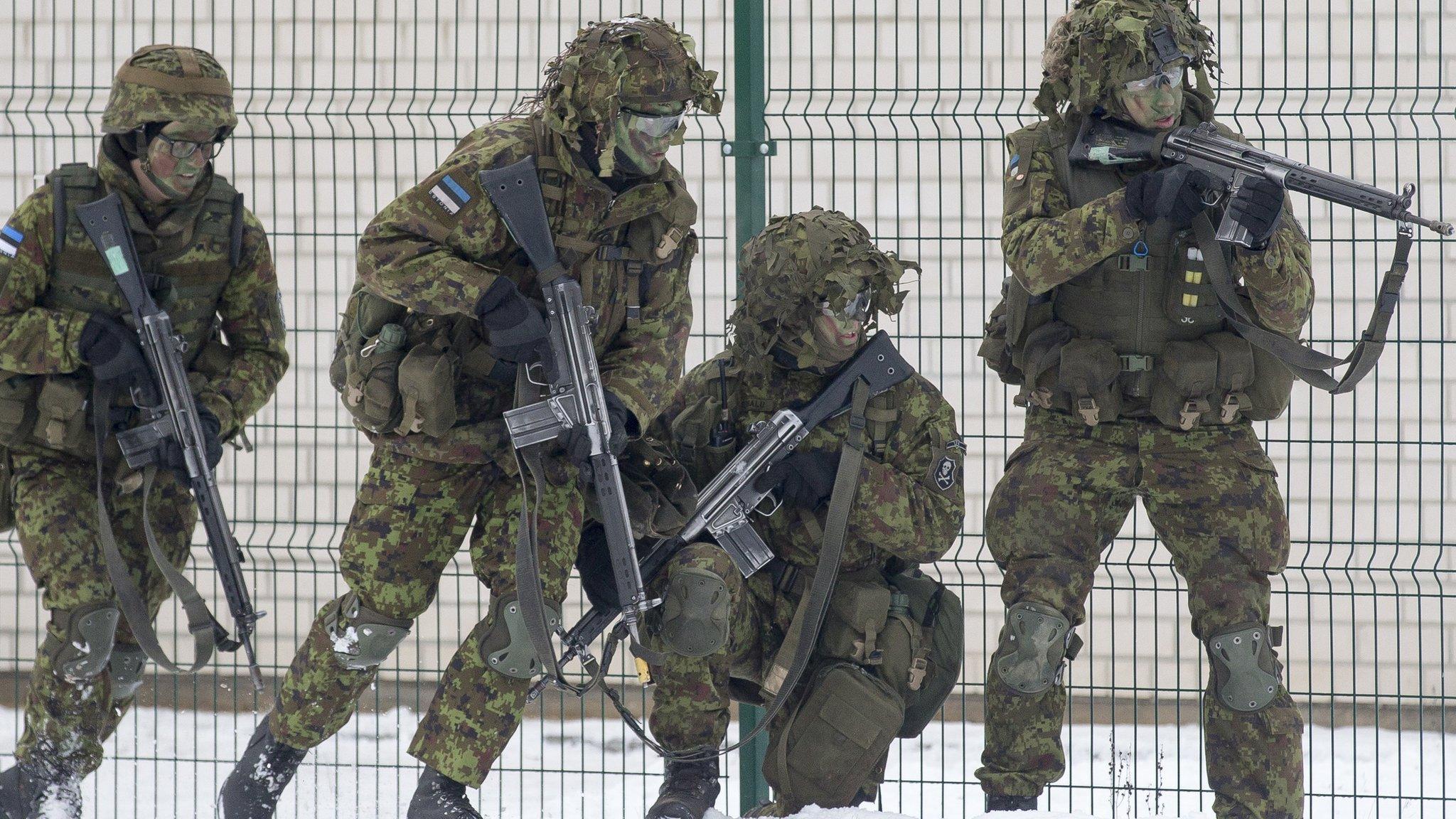
- Published15 February 2017
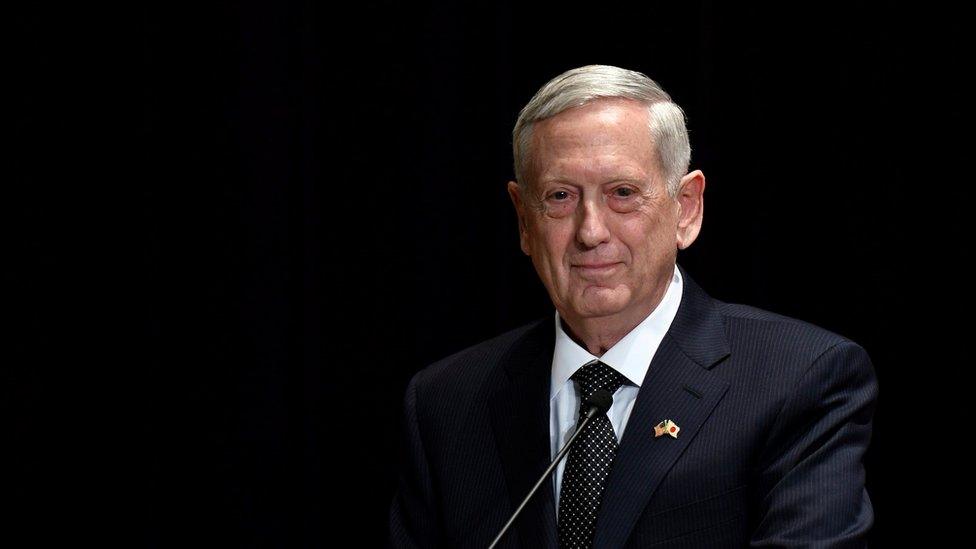
- Published15 February 2017